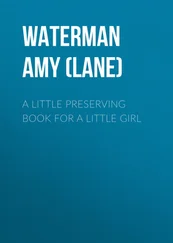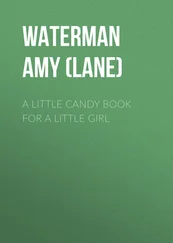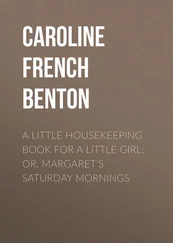Amanda Douglas - A Little Girl in Old Pittsburg
Здесь есть возможность читать онлайн «Amanda Douglas - A Little Girl in Old Pittsburg» — ознакомительный отрывок электронной книги совершенно бесплатно, а после прочтения отрывка купить полную версию. В некоторых случаях можно слушать аудио, скачать через торрент в формате fb2 и присутствует краткое содержание. ISBN: , Жанр: foreign_prose, на английском языке. Описание произведения, (предисловие) а так же отзывы посетителей доступны на портале библиотеки ЛибКат.
- Название:A Little Girl in Old Pittsburg
- Автор:
- Жанр:
- Год:неизвестен
- ISBN:http://www.gutenberg.org/ebooks/43769
- Рейтинг книги:4 / 5. Голосов: 1
-
Избранное:Добавить в избранное
- Отзывы:
-
Ваша оценка:
- 80
- 1
- 2
- 3
- 4
- 5
A Little Girl in Old Pittsburg: краткое содержание, описание и аннотация
Предлагаем к чтению аннотацию, описание, краткое содержание или предисловие (зависит от того, что написал сам автор книги «A Little Girl in Old Pittsburg»). Если вы не нашли необходимую информацию о книге — напишите в комментариях, мы постараемся отыскать её.
A Little Girl in Old Pittsburg — читать онлайн ознакомительный отрывок
Ниже представлен текст книги, разбитый по страницам. Система сохранения места последней прочитанной страницы, позволяет с удобством читать онлайн бесплатно книгу «A Little Girl in Old Pittsburg», без необходимости каждый раз заново искать на чём Вы остановились. Поставьте закладку, и сможете в любой момент перейти на страницу, на которой закончили чтение.
Интервал:
Закладка:
She raised her lovely eyes and looked him all over. "Were you very little?" she asked.
"Well – I think I wasn't very good as a boy."
"Then I don't like grandad as well. I'm bigger than Judy, but do you suppose I would beat her?"
"But if she went in the pantry and stole something?"
"Can you steal things in your own house?"
"Oh what a little casuist you are. But we haven't settled the other question – are you going to love me?"
"I can't tell right away;" reluctantly.
"Well, I am going to love you. You are all the little girl I have."
"But you have all the other people."
He laughed good-naturedly. She was very amusing in her unreason. And unlike most children he had seen she held her love rather high.
"I shall get a horse," he said, "and you will ride with me. And when the spring fairly comes in we will take walks and find wild flowers and watch the birds as they go singing about. Maybe I can think up some stories to tell you. I am going to be very good to you for I want you to love me."
She seemed to consider. Then she saw grandad, who had a little squirrel in his hands. Some of them were very tame, so she ran to look at it.
"A queer little thing," said the father to himself.
CHAPTER IV
OLD PITTSBURG
Spring came with a rush. Barbe Carrick glanced out of the south window one morning and called her little girl.
"Look, Dilly, the daffodils are opening and they make the garden fairly joyous. They are like the sun."
There was a long border of them. The green stalks stood up stiff like guards and the yellow heads nodded as if they were laughing. Wild hyacinths were showing color as well, but these were the first save a few snowdrops and violets one found in woody nooks. Birds were singing and flying to and fro in search of nesting places.
Pittsburg was not much of a town then, but its surroundings were beautiful. The two rivers were rushing and foaming now in their wild haste to pour their overflow into the Ohio. The houses had begun to stretch out beyond the Fort. Colonel Campbell some years before had laid out several streets, the nucleus of the coming city. Then Thomas Hickory completed the plans and new houses were in the course of erection. Still the great business of the time was in the hands of the Indian traders that the French had found profitable. Beyond were farms, and the great tract, afterward to be Allegheny City, lay in fields and woods.
A post road had been ordered by the government between Philadelphia and the town. And there were plans for a paper. For now most people were convinced that the war was at an end, and the Southern cities had been turned over to the Continental government.
There was a brisk, stirring air pervading the place. Business projects were discussed. Iron had been discovered, in fact the whole land was rich in minerals. The traders were bringing down their furs. It had not been a specially cold winter and in this latitude the spring came earlier.
"Oh, it's beautiful!" The child clapped her hands. "Can't I bring in some of them?"
"Oh, yes. But pick only the largest ones. Leave the others on to grow."
She came in with an apron full. "Some are for grandfather," she said.
"Yes, fill this bowl and put it on his table."
She had just finished when he came out. He was always immaculate, and his hair had the silvery tint. His daughter saw that it was always neatly brushed and the queue tied with a black ribbon. He was growing a trifle thinner and weaker.
"Oh, little one," he cried, "did you get a posy for me? Is it your birthday?" and he stooped to kiss the golden hair, then the rosy lips.
"Her birthday will not be until next week," said her mother.
"I had forgotten. I am almost a hundred. And she is – "
"Seven."
"And when I get to be a hundred I'll have a little table like yours, and read out of the Bible, and we'll talk over things that happened when we were children."
He laughed and patted her shoulder. "I shall not be here," he said slowly.
"Oh, where are you going? I do not want you to go away," and she drew an apprehensive breath.
"We do not always stay in one place. I came from France years and years ago. And I shall go to another country, heaven. It is always summer there."
"Can't you take me?" with an eager, upward look.
"Mother wants you. And you are to be a little old lady and sit in this chair."
"And wear a cap like gran'mere? And have two little creases in my forehead, so?"
She tried to make them but they were not much of a success, and the smile returned. "Now let us read."
She took her seat on the arm of the chair. Gran'mere came in and busied herself about breakfast. The reading was from one of the minor prophets. Dilly did not understand it very well but she could converse in the language quite fluently. Her mother had taught her to spell and read English. Girls were not expected to have much education in those days; indeed, here they grew up mostly like the flowers of the field. While the little girls to the eastward were working samplers, sewing long overhand seams, hemming, and doing beautiful darning, these little girls ran about, romped, helped to take care of the next younger baby, grew up and married, no one could have told just how.
After breakfast when the sun was warm and bright grandfather started for his walk. He always felt stronger in the morning. Sometimes Barbe went, often only Dilly. He liked the child's prattle. He liked, too, the way the denizens of the woods came to her, and the birds. True she always had some bread to crumble and she talked in her low sunny voice. Now and then a squirrel would run up her shoulder, watch her with beady eyes that almost laughed and whisk his feathery tail about.
"It does seem as if they ought to talk," she often said.
"They do in their language, only we can't understand them; at least we do in part. Doesn't he say in his fashion, 'I'm glad to see you? Have you any crumbs to-day.' And how one of them scolded when another ran off with that piece you dropped."
"That was funny, wasn't it!" and she laughed. They were sitting on a fallen log in the warm sunshine. Bees were out also, buzzing and no doubt grumbling a little because there were not more sweet flowers in bloom. And the birds sang and whistled in great glee.
They returned from their walk presently through the woods, where she gathered some curious wild flowers. Then they came out by the river, foaming and tumbling about as if it longed to overflow its banks. Now and then a rough kind of boat came down laden with stores of some kind, but there was no hurry visible anywhere.
About sixteen years before the Indians had ceded all the lands about Pittsburg to the Colonies. The six nations assembled with their principal chiefs and warriors and gave the strongest assurance of treaty keeping, which after all were not well kept, as usual. But they had retreated to better hunting grounds and for some time had made little trouble, though many friendly Indians remained.
The wanderers came out to the town proper. Streets were being surveyed, straightened, new ones laid out. There were about a hundred houses ranged round the Fort, but they had begun to spread outside. The disputes with the Pitt family, who had held the charter of Pennsylvania, had been mostly settled and grants of land given to many of the returned soldiers in lieu of the money the Colonial government could not pay. Pittsburg now belonged to the State, and a project had been broached to make it the county seat.
Grandfather looked very tired and pale as he came in and went straight to his chair. His daughter took his hat and cane.
"I did not mean to go so far. I wanted to look at the spot where I had buried my money;" with a little hollow laugh.
Читать дальшеИнтервал:
Закладка:
Похожие книги на «A Little Girl in Old Pittsburg»
Представляем Вашему вниманию похожие книги на «A Little Girl in Old Pittsburg» списком для выбора. Мы отобрали схожую по названию и смыслу литературу в надежде предоставить читателям больше вариантов отыскать новые, интересные, ещё непрочитанные произведения.
Обсуждение, отзывы о книге «A Little Girl in Old Pittsburg» и просто собственные мнения читателей. Оставьте ваши комментарии, напишите, что Вы думаете о произведении, его смысле или главных героях. Укажите что конкретно понравилось, а что нет, и почему Вы так считаете.












